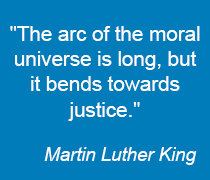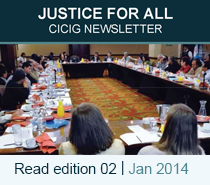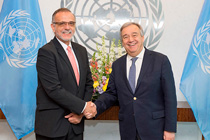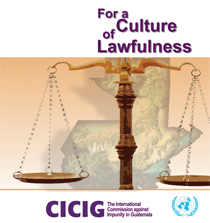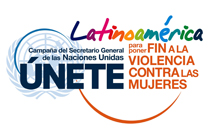|
Francisco Dall’Anese, Attorney General of Costa Rica, was recently in Guatemala and offered his ideas about justice during a course for journalists organized by the Study Centre of Guatemala (CEG).
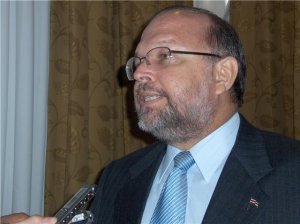 According to the Attorney General, corruption is a ghost that is not known how far it can go. "There is always a veneer of legality: contracts, checks, accounting, transactions, all kinds of economic operations. When something is discovered, it involves some of the above aspects, but we (in Costa Rica) are unable to measure the full extent of impunity as far as corruption is concerned." According to the Attorney General, corruption is a ghost that is not known how far it can go. "There is always a veneer of legality: contracts, checks, accounting, transactions, all kinds of economic operations. When something is discovered, it involves some of the above aspects, but we (in Costa Rica) are unable to measure the full extent of impunity as far as corruption is concerned."
According to Dall’Anese, justice should not only involve the work of judges, prosecutors and the police, but above all, “we need complaints, we need witnesses and we need evidence. If people do not cooperate in this regard, there is no justice," he said, emphasizing that judicial institutions should be provided with the necessary resources to have sustainable witness and victim protection programmes. He also referred to the necessary work being carried out by CICIG in Guatemala, an entity that requires everybody's cooperation to successfully realize the work that was entrusted to it.
Regarding "grand corruption", he said, "Although corruption exists, grand corruption comes from people with real political power that influence institutions in order to steal or divert money for their own benefit or that of third parties, and that additionally are untouchable. There is a fear to confront these people who wield enormous power in our society and those fears have to be put to rest. If we do not stop this, the country is seized," he said.
The Attorney General also stated that when important corrupt individuals begin to be affected, it is because they do not have so much power or their power is diminishing. That means that in order to preserve their impunity, corrupt individuals need to turn to organized, violent criminal groups to threaten witnesses, judges, prosecutors, etc. "In short, everything organized crime does is used later by corrupt individuals. This is what some books call the combination of white corruption and black corruption," he stressed.
Equity in Justice and the Job of the Mass Media
"There is no justice if there exist groups of people that can do whatever they please without being accountable to justice. It must be very clear that untouchables should not exist. This is unacceptable in a democracy," said Dall’Anese.
And in reference to the media, in relation with their function of reporting on corruption and crime, he stated that they also have the task of monitoring those that have power, since the media plays a very important role of informal control to prevent or curtail abuse. "A society without the press is not democratic. You also have to consider that sometimes the press obstructs investigations in their eagerness to be the first to report the news, but I believe this can be corrected with responsibility and dialogue between the authorities and journalists".
The Attorney General also mentioned that when there is corruption in a country and public funds are not invested in public services, society deteriorates. "The recipients of these services, especially the most disadvantaged, are the ones who suffer; this generates more poverty and in the long run, more crime," he stated.
Francisco Dall’Anese, Attorney General of Costa Rica, is a licensed attorney, graduated from the University of Costa Rica and a specialist in Criminal Science. Additionally, he received an honorary PhD from the Universidad Escuela Libre de Derecho of Costa Rica.
|


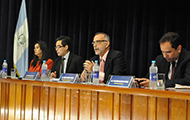
 According to the Attorney General, corruption is a ghost that is not known how far it can go. "There is always a veneer of legality: contracts, checks, accounting, transactions, all kinds of economic operations. When something is discovered, it involves some of the above aspects, but we (in Costa Rica) are unable to measure the full extent of impunity as far as corruption is concerned."
According to the Attorney General, corruption is a ghost that is not known how far it can go. "There is always a veneer of legality: contracts, checks, accounting, transactions, all kinds of economic operations. When something is discovered, it involves some of the above aspects, but we (in Costa Rica) are unable to measure the full extent of impunity as far as corruption is concerned."